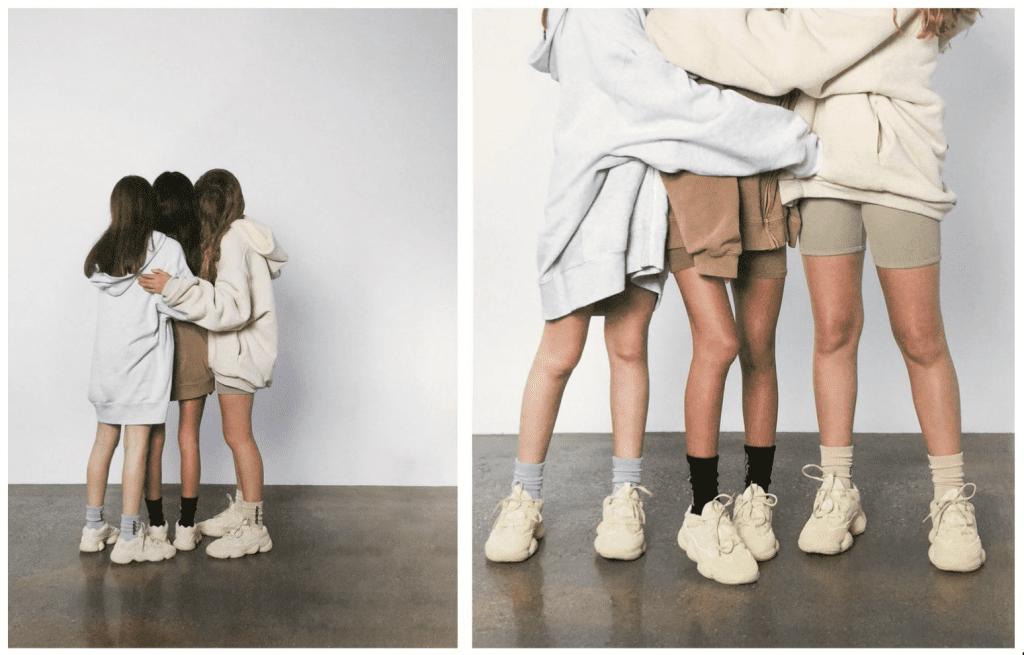Kanye West is pushing back against the case filed against him by a fabric supplier for his Yeezy brand. Earlier this year, Japanese textile firm Toki Sen-I Co. named West in a fraud and breach of contract lawsuit for allegedly failing to make good on a $600,000-plus contract they signed and operating Yeezy Apparel as “a mere shell and sham without capital, assets, membership interests, or members other than Kanye … intended, conceived [of], and used by Kanye as a device to avoid individual liability.”
In response to Toki Sen-I’s complaint, counsel for Yeezy Apparel and Kanye West filed a demurrer – or a written response to a complaint that asserts that even if all the factual allegations in the plaintiff’s complaint are true, they are insufficient to establish a valid cause of action – for all four of Toki Sen-I’s causes of action. More than that, the Yeezy counsel put forth a motion to strike Toki Sen-I’s allegations that West set up Yeezy Apparel exclusively to shield himself from personal liability in connection with his fashion collections and that in reality, West and Yeezy apparel are little more than “alter egos.”
To be exact, counsel for Kanye and Yeezy argued in its filing that the alter ego allegations put forth by Toki Sen-I are “inadequate” because all they do is establish “that West is the sole owner and sole person responsible for Yeezy brand,” a fact that “is not sufficient to pierce the [corporate] veil,” and make Kanye personally liable for the claims against Yeezy Apparel.
According to West’s legal team, the supplier needs to allege additional factors – such as that there is a commingling of corporate and individual assets or sole ownership of all corporate stock by one individual or the members of a single family, for instance – in order to prove that West and Yeezy are actually alter egos.
In addition, Kanye’s counsel claims that Toki Sen-I has failed to show that it actually entered into “an identifiable contract” that would give rise to a breach of contract claim, largely because its “allegations of acceptance and [at least some of the] terms are vague,” and/or that Kanye breached any of those terms. Still yet, they claim that Toki Sen-I has failed to show that carried out its end of the bargain in connection with such a contract.
Kanye’s team goes on to attack the plaintiff’s fraud allegations, among other things, arguing that they “are not alleged with specificity; that the representations are not legally actionable because they constitute predictions of the future events; and that the plaintiff failed to allege intent to defraud.”
In a hearing earlier this month, Judge Huey P. Cotton of the Superior Court of California in Los Angeles sided with West and Yeezy, sustaining the demurrer in its entirety, as to all four causes of action. An upside for Toki Sen-I, Judge Cotton is giving the company the right to amend its complaint to “attach the emails showing formation of the contract and the remaining terms or to allege those in more precise terms,” and also noted that if it is “able to amend and allege a viable fraud claim,” it may also allege punitive damages.
As for the motion to strike the alter ego allegations, the Judge sided with Yeezy, but has similarly given Toki Sen-I the ability to amend its claims.
The parties are due back in court in August for a hearing in connection with a potential demurrer and motion to strike based on Toki Sen-I’s amended complaint.
*The case is Toki Sen-I Co., v. Yeezy Apparel LLC, Kanye West, et al., 19-VECV-00110 (Cal. Sup.).











